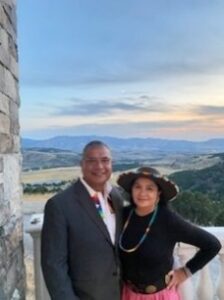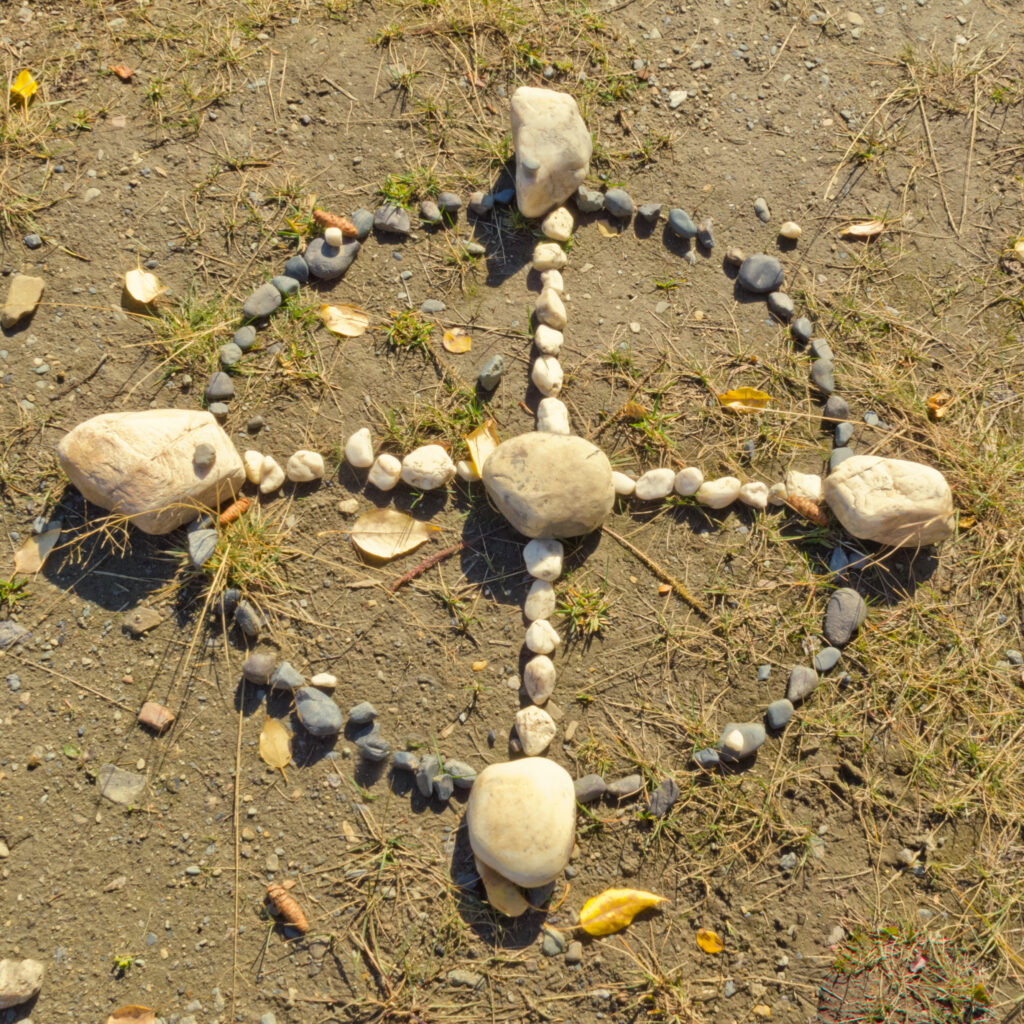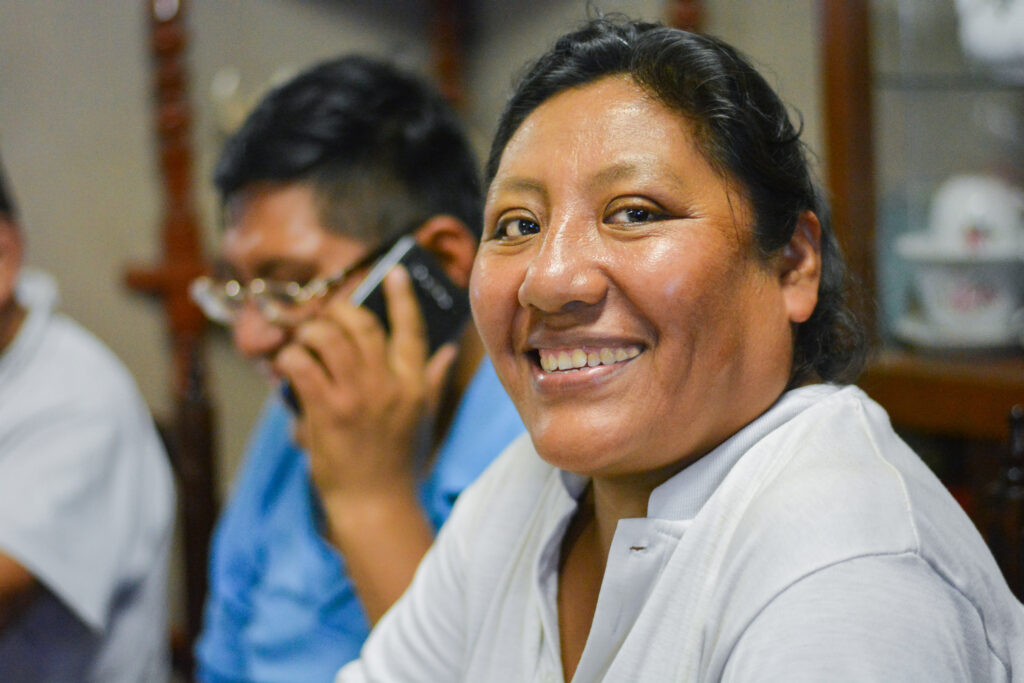by Darren J. Crowe (Western Shoshone/Sicangu Lakota), MBA-Health Care Management; Business Development Consultant for Tribal Health
Growing up on a reservation, my wife Angel and I both witnessed the struggles firsthand in both our families – poverty, limited resources, isolation, drugs and alcohol, and the silent, heavy burden of generational trauma. Somehow the experiences that shaped our early lives motivated us to pursue careers in healthcare, but our goal was never about personal success.
I spent over twenty years in private sector health care. My vision was to return to Native communities across the country and improve healthcare in a way that respects our culture, values, and unique challenges. Today, after serving 35 years within the various models of healthcare including the Indian Health Service, I am proud to be working toward that goal now with Tribal Health, helping Native American and Alaskan communities find medical providers who honor our traditions, embrace culturally sensitive care, and walk alongside us on our journey toward holistic well-being.

The Importance of Culturally Sensitive Care
For far too long, healthcare in Native communities has often come from a place of misunderstanding, disconnection, or outright neglect. We all have personal stories of visiting clinics or hospitals where we felt like just another number, where providers knew little about our lives or values. Too often, the Western healthcare model has failed to meet us where we are, treating only the physical symptoms and overlooking the emotional, mental, and spiritual components of health that are central to Native beliefs.
As I pursued my education, I kept coming back to the Medicine Wheel—a sacred symbol in many Native cultures representing balance across physical, mental, social, and spiritual realms. To me, this symbol was not just a cultural relic; it was a roadmap for how healthcare should be delivered. True health means balance in all aspects of life, and without understanding and honoring each of these dimensions, healthcare is incomplete.

Trauma-Informed Care: More Than Just a Method
When I think of health care that aligns with the Medicine Wheel, I think of trauma-informed care. Generational trauma is a reality in Native communities. Forced relocations, loss of land, warrior societies and culture, boarding schools, and years of government policies that aimed to suppress our identity have left scars that run deep. On top of this, economic disadvantages and geographic isolation mean that many of our people are in survival mode—struggling to meet basic needs like food and shelter, let alone thinking about regular doctor visits.
Trauma-informed care is essential because it acknowledges that patients may be carrying heavy emotional burdens and subconscious triggers. It reminds providers that our people have had deeply painful interactions with authority figures or institutions and that this history can influence their responses today. When healthcare providers bring trauma-informed principles into practice—respecting autonomy, establishing trust, avoiding triggers—they honor our shared experiences and make the clinic a safe space.
I have seen firsthand the difference it makes when culturally sensitive providers take the time to understand where we are coming from and what we need, rather than simply treating us like another patient on their schedule. When a patient says, “this is my provider or nurse…” you have made the connection with your patient(s). Staff have witnessed this affect working with my wife, Angel Wilson-Crowe, FNP, in the emergency department.

The Healing Power of Empathy
The individual’s visit to a healthcare facility may be one of the few times they encounter compassion and understanding outside their home on the streets or community home. This compassion has the power to transform. A provider who listens, who offers a kind word or a simple gesture of respect, can create a moment of safety and healing. These small moments of empathy may seem insignificant, but they are a form of medicine in themselves, offering a glimpse of hope with a smile and connection for patients who have spent their lives in survival mode.
One of the biggest lessons I have learned in this work is that healing happens in moments of connection. When providers offer genuine empathy and patience, they make it possible for patients to trust them, to open, and to take steps toward their own wellness. This kind of care is not just about addressing symptoms; it is about being seen, valued, and heard.

Building Resilience and Community-Centered Health
My goal is to build culturally sensitive partnerships between healthcare providers and Native communities that go beyond a single visit or treatment. I want to see providers who respect and integrate our traditional healing practices—like ceremonies, talking circles, or sweat lodges—and understand the importance of family and community in Native culture. By collaborating with local leaders and community health workers, providers can bridge the gap, tailoring care in a way that feels familiar and safe for our people.
Beyond medical treatment, we need community-centered health initiatives that support resilience. Programs that address food security, access to clean water, mental health resources, and youth mentorship can help our people move from surviving to thriving. These initiatives have influence not just for one person, but for entire families and generations to come.
Coming Full Circle: Honoring Our Past, Empowering Our Future
For Angel and me, continuing to serve Native communities is more than a career; it is a personal calling. Every day, I am reminded of the strength, wisdom, and resilience of my relatives and distant ancestors, who taught us to never lose hope and to take pride in who we are. I believe that by combining the wisdom of the Medicine Wheel with trauma-informed, culturally sensitive care, we can build a healthcare model that truly serves our people—a model that understands where we come from and walks with us toward where we are going.
It is an honor to collaborate with providers who understand that being a healer in our communities is a privilege. These providers know that when they step into our world, they are not just treating a patient; they are witnessing a story, a history, and a future. Together, by honoring our past and addressing the complex needs of today, we are paving the way for healthier, stronger Native communities. My hope is that, through these partnerships, we can finally have healthcare that reflects our values, uplifts our spirits, and brings healing to generations.
It is a journey, and we still have a long way to go. But I believe, with compassion, cultural sensitivity, and a commitment to our people, we can make the path to wellness a reality for all Native American and Alaskan communities. A big “thank you” to all the Tribal Health employees on this journey with us.

